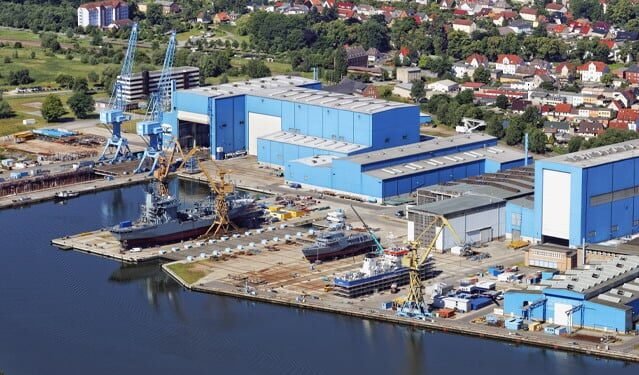
Parliament’s Joint Standing Committee on Defence (JSCD) and Portfolio Committee on Defence and Military Veterans (PCDMV) recently conducted a study tour to Germany, and suggested various ways in which the SA National Defence Force and SA defence industry could learn from the German model.
The June-July 2023 visit was conducted to study international best practice on various defence matters, including military force structure and design, and defence industry management and oversight, allowing the committees to make recommendations for South Africa’s own force design and provide oversight of the Aerospace and Defence Masterplan, amongst others. During the week long tour, the committees visited Hensoldt Germany, the German Parliament’s Defence Committee’s Secretariat, NVL Group, Rheinmetall Germany, Tamsen Maritim etc.
In its September 2023 report, the committees noted the generally positive relationships between defence companies and arms control regimes in both Germany and South Africa. However, they acknowledged frustrations over delays in decision-making by South Africa’s National Conventional Arms Control Committee (NCACC). Delays in export applications, such as those from Rheinmetall Denel Munition (RDM) to Poland and Türkiye, were cited in their post-tour report, emphasising the need for procedural improvements in South Africa. The committees suggested urgent implementation of the electronic permit application system by the Directorate Conventional Arms Control (DCAC) to streamline and expedite defence exports.
The study tour also shed light on the willingness of German defence companies to expand and maintain operations in South Africa, showcasing the potential economic growth associated with the defence industry.
The committees also observed a general willingness by German naval companies to assist the SA Navy in an advisory role regarding its fleet maintenance. “While the committees have no intention in promoting any specific company, the Study Tour did demonstrate the potential value in strategic partnerships around naval maintenance where it is in the best strategic and financial interest of the Navy to do so,” their report stated. The committees visited NVL Group (Lurssen) and Tamsen Maritim in this regard.
The committees underscored the need for South Africa to capitalise on its capability to produce high-quality military equipment. However, concerns were raised about the South African National Defence Force’s (SANDF’s) reliance on legacy systems, which are becoming increasingly costly to maintain. The committees highlighted the necessity of South Africa acquiring modern military technology but noted the lack of resources for this.
The committees pointed out the importance of better planning for equipment maintenance within the SANDF, emphasising the need for appropriate funding. They highlighted the importance of clarity and certainty in maintenance planning for both operational purposes and aiding industry role-players in their planning efforts.
Force rejuvenation
Regarding force rejuvenation, the committees in their post-tour report drew attention to the ‘coherent’ personnel management plan of the Bundeswehr (German Armed Forces). Specific interest was shown in the various contracting models, including short-term, medium-term, and career soldiers, which contribute to long-term human resources sustainability and constant force rejuvenation.
“The Bundeswehr demonstrated a sustainable model of exiting older personnel from the system in a responsible and humane way by supporting their transition to civilian life through a number of support measures,” the report noted. “The committees observed a balanced Bundeswehr in personnel terms, specifically as it relates to the troop-to-general ratio of the Force.” Also of interest is the fact that officers are required to have a university degree, and that the Bundeswehr spends around 40% of its budget on personnel (South Africa in contrast spends around 60% of its defence budget on personnel).
The committees advocated for the development of a similar system for the SANDF, emphasizing consultation with the National Treasury and the necessity of full funding.
The JSCD and PCDMV noted the importance attached to cyber defence in Germany and recommended the finalisation of the Cybersecurity Bill in South Africa, with a specific framework for Cyber Defence. While acknowledging that the bill might not be finalised immediately, the committees encouraged the SANDF to continue developing its Cyber Defence capabilities, recommending additional ring-fenced funding for this purpose.
“The committees observed that the geo-strategic situation in Europe has a significant impact on recent defence expenditure, as is reflected in the €100 billion special defence procurement package in Germany. While this makes comparison to the South African case difficult in its current form, it shows that years of limited investment in defence capabilities requires heightened levels of expenditure to recover lost capabilities. The committees therefore notes the need for ongoing reinvestment in defence capabilities,” their report states.
The study tour findings also highlighted the importance of using technology as a force multiplier. The committees emphasised the need for ongoing reinvestment in defence capabilities and the potential relevance of equipping the South African Navy with an Offshore Patrol Vessel capability as a cost-effective means of ensuring maritime security.
Other recommendations
The committees further recommended that the SANDF and Armscor jointly conduct a review of SANDF legacy weapons systems that need specific production of munitions. The SANDF and Armscor should then present a report to the JSCD on such systems and future related expenditure for ammunition and upgrades against the cost of replacement with more modern systems. “The high-level report, which should exclude sensitive details, should be submitted to the JSCD no later than three months following the tabling of this report,” the committees said.
They also called for a final decision on the way forward for Project Hoefsyter, for the SA Army’s new Denel Land Systems Badger infantry fighting vehicle, to be decided “as this will clearly impact on the future of Denel and will impact on the entire industry value chain in South Africa.”
The committees encouraged the SANDF to make use of training opportunities at German Military Universities and also consider exchange programmes with the German military at the South African Military Academy. “Where relevant and of sufficient quality, similar learning opportunities with other countries should also be explored to ensure maximum international exposure to SANDF members.”
The full study tour report can be found here.










